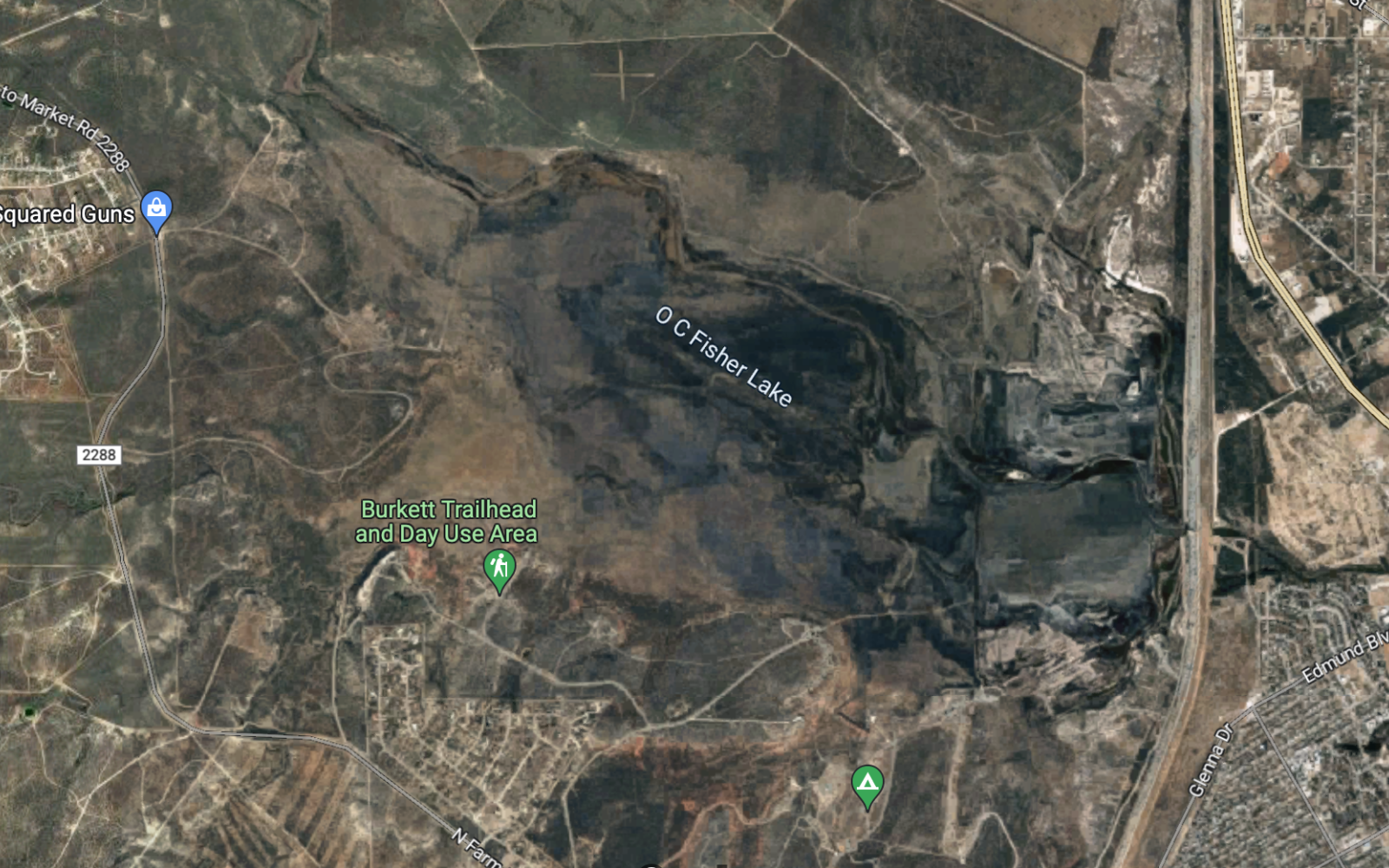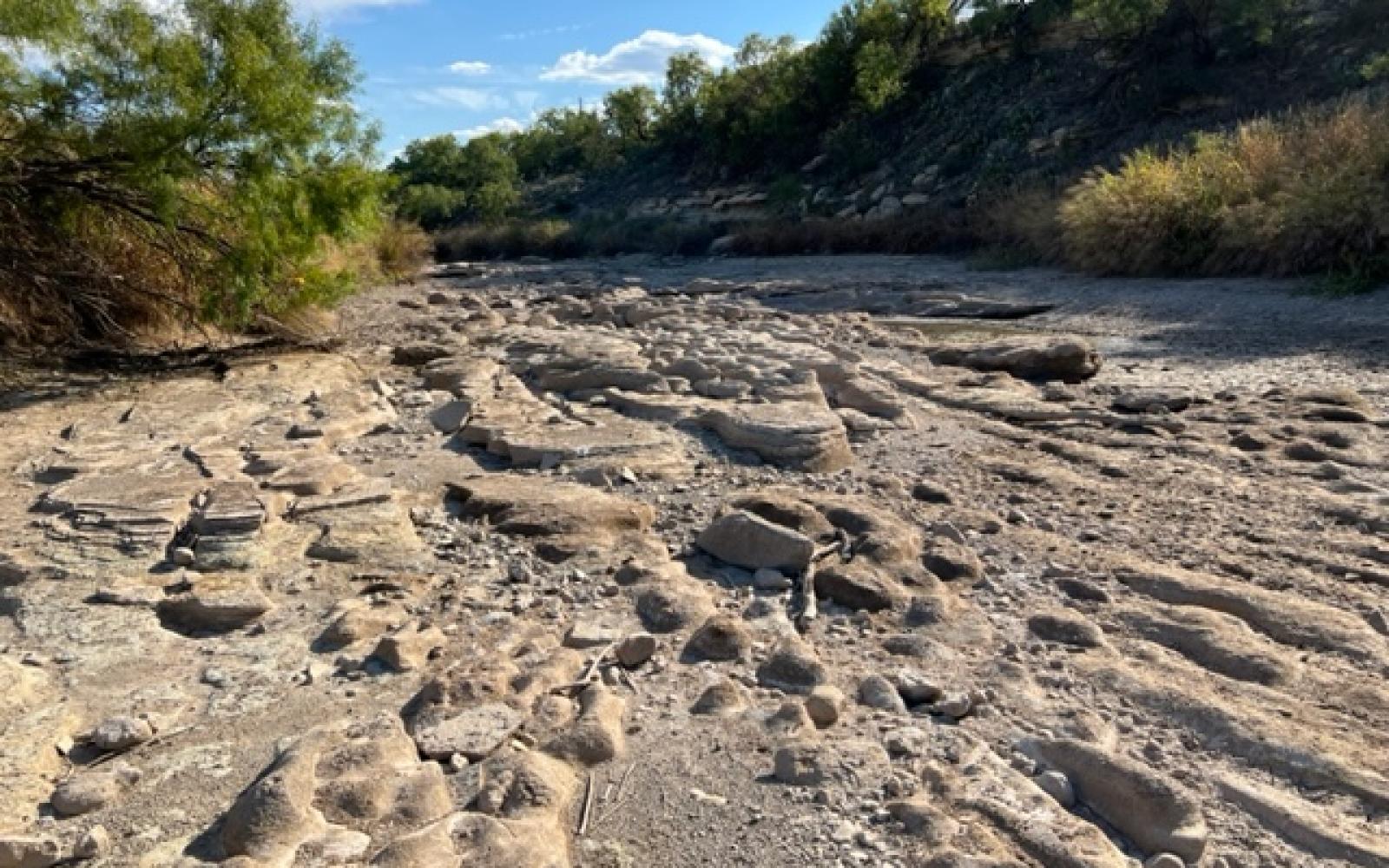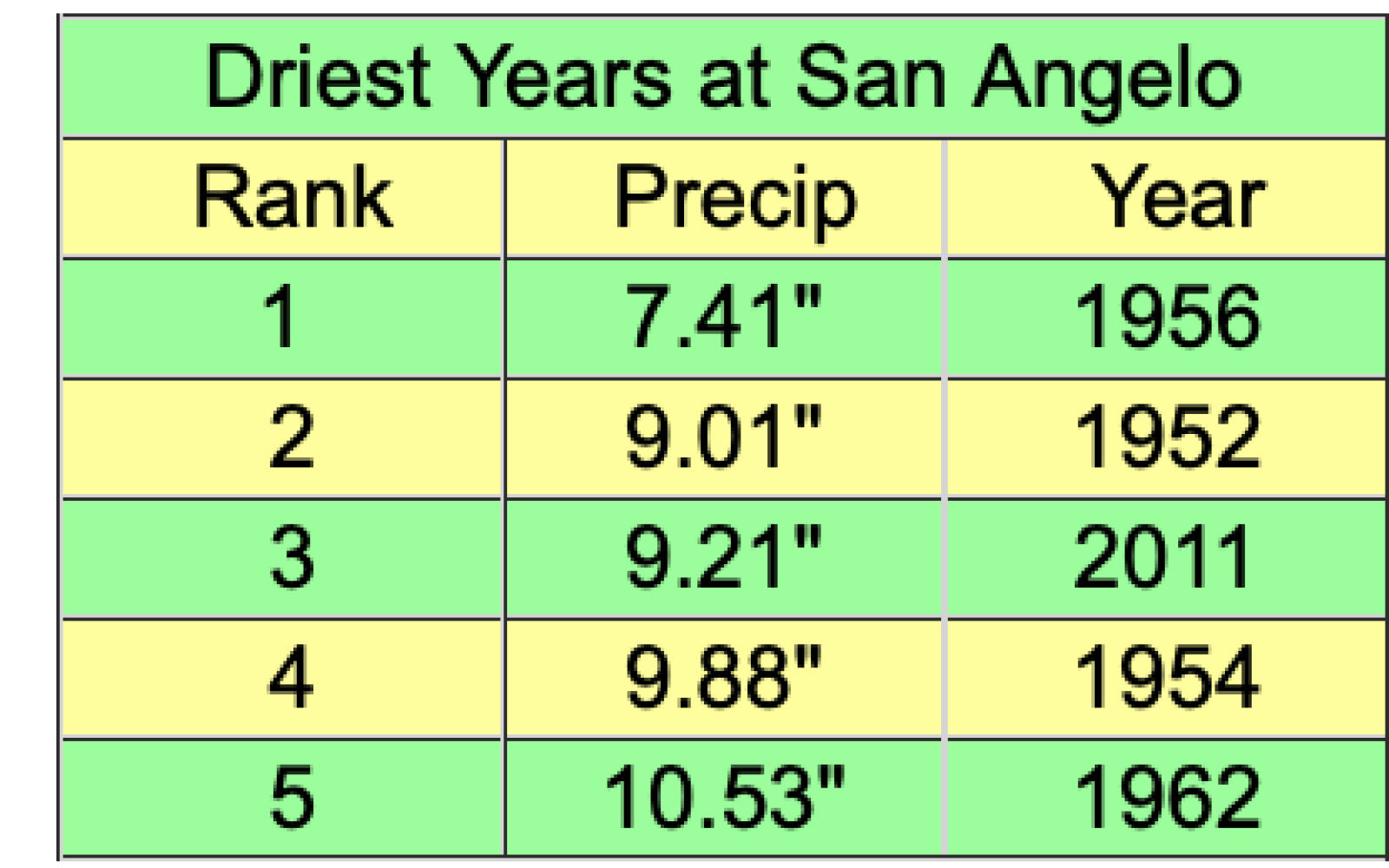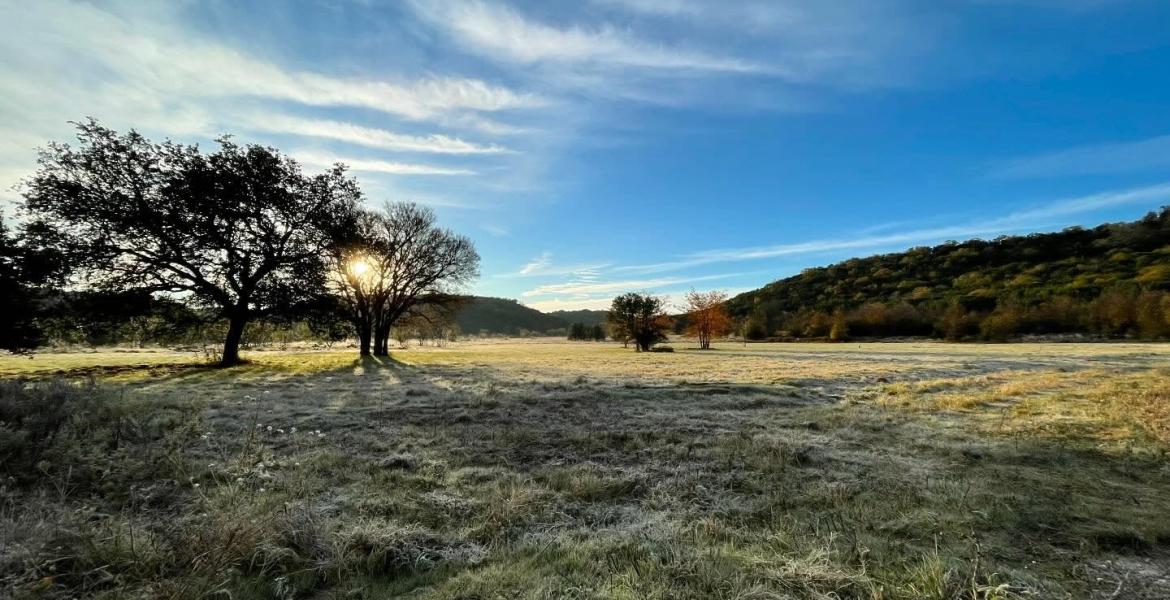SAN ANGELO – O.C. Fisher reservoir on the west side of San Angelo is going dry again and that could be a sign that the ongoing drought will spread and intensify in 2023.
The expansive reservoir owned and operated by the Upper Colorado River Authority and supplying the City of San Angelo is less than 3% full as of Thursday, Feb. 23, 2022. That's 3,517 acre feet of water in a lake that can hold 115,742 acre feet.
The dam and reservoir are managed by the United States Army Corps of Engineers, which leases 7,677 acres of the surrounding shoreline to Texas Parks & Wildlife Dept. for the San Angelo State Park.

O.C.Fisher Reservoir from Google Maps 2.23.23 (Courtesy/googlemaps)
O.C. Fisher is a shallow lake with lots of surface area and that allows for evaporation most of the year.
According to reports, in March 2012, the reservoir was completely dry and was officially at 0% capacity. The lake remained between 0% and 1% capacity until May 2015 when near daily heavy rains caused the lake level to rise over 22 feet to just above 13% capacity in 1 month.

N. Concho River Dry 2.23.23 (LIVE! Photo/Yantis Green)
O.C. Fisher is fed by the North Concho River which has been dry for several months and stopped running over a year ago.
One of the current pressures on the reservoir is a lack of rainfall. In 2022, the San Angelo area received a total of 13.7 inches of rain, which is 7.23 inches below normal according to the National Weather Service.
The following is from the NWS about the lack of rain during the historic drought of 2011:
"While one could argue that the heat was the most unbearable aspect of the 2011 summer, probably the most pressing issue was the overall lack of rainfall for the southern Plains, including all of the San Angelo County Warning Area. Spring thunderstorms were a bit more sparse than we are accustomed to, but little help arrived during the summer months thanks, in large part, to the large dome of high pressure sitting overhead. Mathis Field in San Angelo recorded 2.94" of rain through July but did see some relief by mid August when another 1.64" fell. Through August, San Angelo had recorded 4.58" of precipitation, falling well below the normal of 14.07". This maintained the pace to best the mark for the driest year on record (since 1947). Very dry conditions continued through September but we finally receive a bit more relief with the change to fall. October precipitation was slightly above normal for San Angelo. November reverted back to the dry regime but December was rather cool and damp, coming in above normal in precipitation. This brought the year end total to 9.21". The normal for San Angelo is 21.25", meaning San Angelo received less than half of its 30 year normal rainfall. Precipitation records are rather sparse before 1943, so the comparision for driest years on record begins at that point. The 9.21" of precipitation comes in as the 3rd driest year on record and is the first year of less than 10 inches since 1956!"

Driest Years in San Angelo (Courtesy/NWS)
While O.C. Fisher going dry again is concerning, the reservoir is only a small part of the water supply for the City of San Angelo.
According to the City's website, San Angelo has a 52 month supply of water from five surface water sources in addition to the Hickory Aquifer.
San Angelo's water supply includes O.C. Fisher, O.H. Ivie, Twin Buttes, Lake Nasworthy, and E.V. Spence along with the Hickory underground aquifer and future sources including the Concho River Water Project and the West Texas Water Partnership.
One thing is for sure, without abundant spring rains, O.C. Fisher reservoir will be dry again this summer and that could be the best indication of another significant and intensifying drought in west Texas.
Subscribe to the LIVE! Daily
Required






Post a comment to this article here: